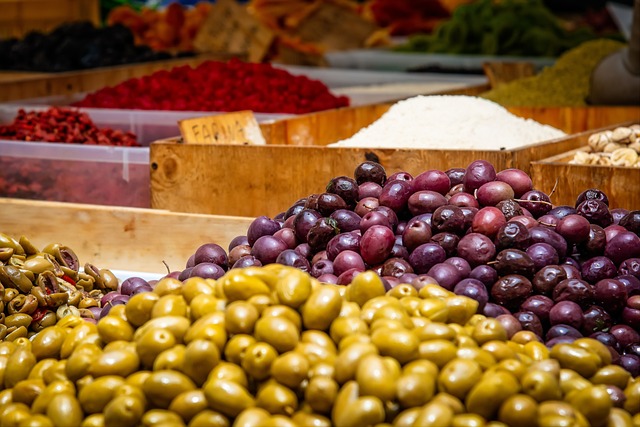Gut-Healing Superstars: Discover the Top Probiotic Foods
Probiotics, often referred to as the “good” bacteria, have gained immense popularity for their potential benefits on gut health. These live bacteria and yeasts have been studied extensively and are known to provide several health benefits when consumed in adequate amounts.
While probiotic supplements are readily available, incorporating probiotic-rich foods into our diet is equally important. Not only are they natural, but they also offer a variety of nutrients along with the beneficial microorganisms. So, let’s dive into the top probiotic foods that can promote gut healing and overall well-being.
1. Yogurt
Yogurt, a fermented milk product, is a classic example of a probiotic food. It contains live cultures of bacteria such as Lactobacillus and Bifidobacterium, which help balance the gut microbiota. When choosing yogurt, opt for varieties that mention “live and active cultures” on the label to ensure you’re getting the maximum benefit.
2. Sauerkraut
Sauerkraut is made by fermenting cabbage with lactic acid bacteria. This process not only enhances the shelf life of cabbage but also creates a tangy and flavorful dish. The fermentation process increases the number of beneficial bacteria, making sauerkraut an excellent choice for improving gut health.
3. Kimchi
Kimchi, a traditional Korean side dish, is similar to sauerkraut in terms of the fermentation process. It is made by lacto-fermentation of cabbage, radishes, and various spices. Kimchi is not only a probiotic food but also rich in vitamins, minerals, and antioxidants, making it a nutritious addition to your diet.
4. Kefir
Kefir is a fermented milk drink that is made by adding kefir grains to milk. These grains contain a mixture of bacteria and yeast, which initiate the fermentation process. It is known to have higher probiotic diversity compared to yogurt, offering a broader range of microorganisms that can benefit gut health.
5. Miso
Miso is a traditional Japanese seasoning made by fermenting soybeans with salt and a fungus called Aspergillus oryzae. This fermentation process results in a paste-like substance with a rich umami flavor. Miso is not only a probiotic food but also a source of essential amino acids, vitamins, and minerals.
6. Tempeh
Tempeh is a fermented soybean product originating from Indonesia. It is made by culturing soybeans with a fungus called Rhizopus oligosporus. Tempeh is not only a good source of protein but also contains probiotics that can support gut health and aid digestion.
7. Kombucha
Kombucha is a fermented tea beverage that is created by fermenting sweetened black or green tea with a symbiotic culture of bacteria and yeast (SCOBY). The fermentation process produces a tangy and slightly fizzy drink that is not only refreshing but also a great source of probiotics.
8. Pickles
Pickles are cucumbers that have been pickled in a solution of water, vinegar, and salt. The fermentation process involved in pickling creates an environment for beneficial bacteria to thrive. Choose naturally fermented pickles rather than those made with vinegar to ensure you’re getting the probiotic benefits.
9. Kvass
Kvass is a traditional fermented beverage popular in Eastern Europe. It is made by fermenting rye bread or other grains with water and a starter culture containing beneficial bacteria and yeast. Kvass not only offers probiotics but also provides vitamins, minerals, and enzymes that are beneficial for digestion.
10. Natto
Natto is a traditional Japanese dish made from fermented soybeans. It is made by fermenting soybeans with a strain of bacteria called Bacillus subtilis. Natto is known for its unique taste and sticky texture. It is a probiotic food that also







